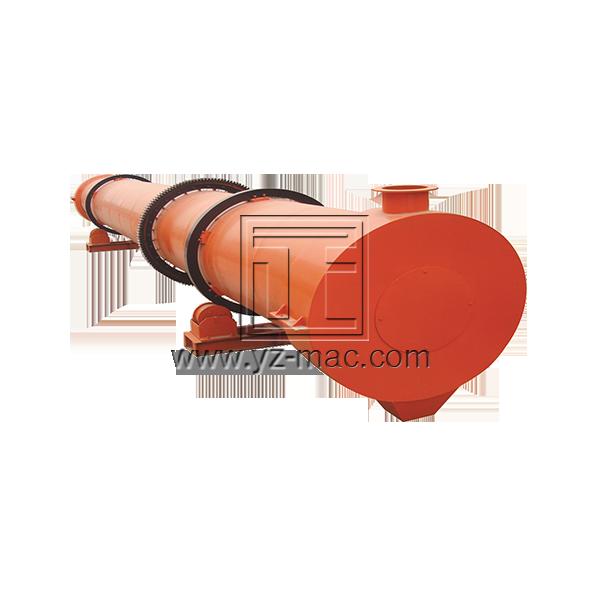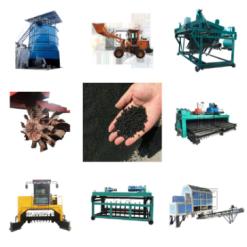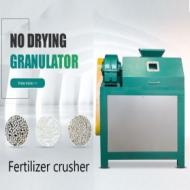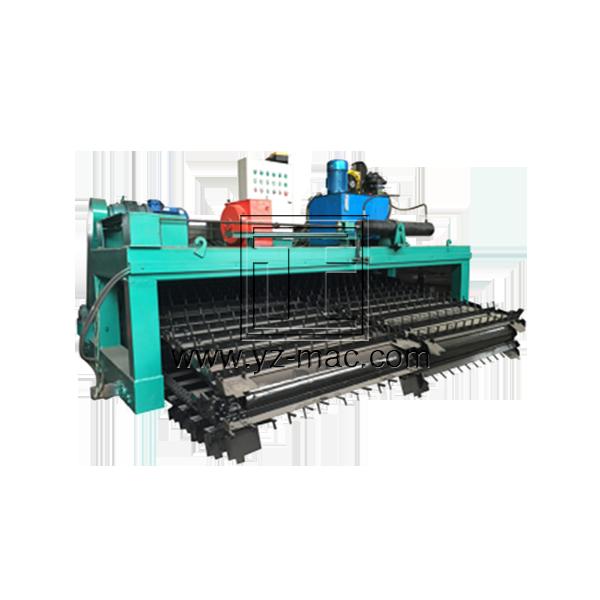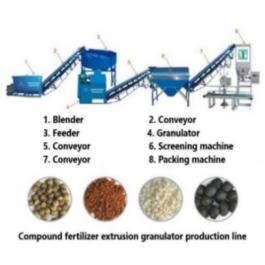Fertilizer granulation machine
A fertilizer granulation machine is a vital piece of equipment in the production of granular fertilizers. It plays a crucial role in transforming organic waste materials, such as compost, livestock manure, and crop residues, into nutrient-rich granules.
Benefits of a Fertilizer Granulation Machine:
Enhanced Nutrient Availability: By granulating organic waste materials, a fertilizer granulation machine optimizes nutrient availability. The granules provide a concentrated source of nutrients that are easily absorbed by plants, promoting healthy growth and maximizing fertilizer efficiency.
Improved Handling and Application: Granulated fertilizers are easier to handle, store, transport, and apply compared to bulk organic waste materials. The uniform size and shape of the granules facilitate even spreading and precise application, reducing nutrient wastage and ensuring optimal nutrient distribution.
Controlled Nutrient Release: Fertilizer granulation allows for the incorporation of slow-release or controlled-release components. This enables a gradual release of nutrients over an extended period, providing a sustained supply of nutrients to plants and minimizing the risk of nutrient leaching and environmental pollution.
Customizable Formulations: Fertilizer granulation machines offer flexibility in formulating custom blends with specific nutrient ratios and additives. This allows farmers and gardeners to tailor the fertilizer composition to meet the specific nutrient requirements of different crops, soil conditions, and growth stages.
Working Principle of a Fertilizer Granulation Machine:
A fertilizer granulation machine utilizes a variety of techniques to transform organic waste materials into granular fertilizers. The main processes involved include:
Agglomeration: The organic waste materials are mixed with binders or additives to form agglomerates. This process helps improve the cohesion and strength of the granules.
Granulation: The agglomerated materials are then fed into the granulation machine, where they undergo compaction and shaping. Various methods such as extrusion, rolling, or tumbling are employed to form uniform-sized granules.
Drying: The freshly formed granules may contain excess moisture, which needs to be removed. Drying is typically carried out using hot air or other drying methods to reduce the moisture content and enhance the stability of the granules.
Cooling and Screening: The dried granules are cooled to room temperature to prevent moisture reabsorption. They are then screened to remove oversized or undersized particles, ensuring a consistent size distribution of the final fertilizer product.
Applications of Fertilizer Granulation Machines:
Agriculture and Crop Production: Fertilizer granulation machines are extensively used in agricultural practices to produce granular fertilizers suitable for field crops, fruits, vegetables, and ornamental plants. Granulated fertilizers provide a convenient and efficient way to supply essential nutrients to crops, enhancing yields and improving crop quality.
Organic Waste Recycling: Fertilizer granulation machines contribute to the recycling and utilization of organic waste materials. They convert compost, livestock manure, food waste, and other organic residues into value-added fertilizer products, reducing environmental pollution and promoting sustainable waste management practices.
Commercial Fertilizer Production: Fertilizer granulation machines are essential in large-scale commercial fertilizer production facilities. These machines enable the manufacturing of a wide range of granular fertilizers, including compound fertilizers, organic fertilizers, and specialty blends. The granulated fertilizers meet the demands of commercial agriculture and horticulture industries.
Soil Remediation and Restoration: Fertilizer granulation machines are utilized in soil remediation and land restoration projects. They assist in the development of granular soil amendments that enhance soil fertility, improve soil structure, and facilitate the reclamation of degraded or contaminated lands.
A fertilizer granulation machine is a valuable asset in the production of granular fertilizers from organic waste materials. With benefits such as enhanced nutrient availability, improved handling and application, controlled nutrient release, and customizable formulations, these machines play a vital role in promoting sustainable agriculture, organic waste recycling, and soil restoration.



